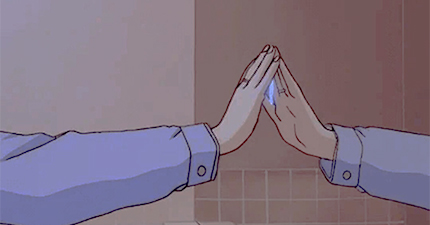I came to age in the era of enthusiastic consent. I was told all the time that consent is at its most clear when it’s given enthusiastically. Whenever I would hear this, my sarcastic brain would go “well, what if I’m too depressed to be enthusiastic about anything?” But I kid. Enthusiastic consent is just a framework. Like all frameworks, it clarifies some things and obfuscates others.
In my book Postcolonial Astrology, I talk about how the burden of clarifying assault is always placed on the person being assaulted and never on the person doing the assaulting. It is up to someone who is undergoing assault to recognize assault when it happens and to tell someone who is doing the assaulting that it is happening with enough clarity to be understood and heard.
People talk about how we are not given adequate education about what consent looks like and how to talk about it, saying that there are some people too young to know that they are assaulting another person. No one ever talks about how the reverse is also often true. People who are misinformed about consent and without strong boundaries are also assaulted and, yet, they’re expected to know when they are violated.
Knowing what consent looks like can feel, in ideologies that try to locate guilt as precisely as possible, like a tremendous burden. It can sometimes take years of learning, healing, and relating to understand that your consent was violated.
There are some instances where a violation of consent is widely understood enough to be clear to most people, instances where people cannot consent or withdraw consent. There are also instances where consent is less clear, where things are more individual, and negotiations are more gray. There are ways that I want to pushed into my boundaries with consent. This applies to sex but it can also apply to most therpeutic practices.
The way we talk about consent is often anticipatory. We talk about discussions before and stopping during. We talk about preparations and about how we can get so deep into consent discussions that we almost never start doing the thing that we want to do together.
But what about after? What if a large bulk of the processing of where our consent starts and stops occurs after something has already happened?
Usually, there is a sense of things already having been done. You can’t change the past. There is a sense of futility involved in changing your consent after something has occurred. But what if you don’t know that you don’t want something until it has already happened?
What if there’s nothing wrong with that? What if we understood that consent can change in the aftermath? What if there are ways to change one’s consent after it has been crossed that don’t feel futile at best and bewilderingly harmful at most? What if we expected ourselves to check in about consent, to explore it deeper and in a far richer way, in its aftermath where it shifts and unfolds? What if consent is not about prevention but about exploration?
What if this wasn’t so scary because it wasn’t about assigning blame or guilt? What if “you did this and I didn’t want it” became “I learned that I didn’t want this after you tried it with me and this isn’t a bad thing but a growing thing?”
What if, sometimes, trauma has less to do with an event that happens and more to do with how well we are supported throughout and after something harmful occurs? What if, when we are supported as our consent changes in the aftermath of a situation that we realize to be harmful, that this is enough to withstand the splintering of memory and of self? What if, when our consent changes in the aftermath, we can still live whole as long as we understand that this is good and okay?
That would mean that we are more resilient than we imagine. It would challenge us to make consent frameworks that are just as resilient as ourselves.
It would also require more out of us. Consent negotiations would not stop as soon as an act is over and done with. They would continue because we would understand that consent often changes after the fact of an event occurs, that consent has just as much to do with how we hold memory as what empirically occurs. It would require a lot more care, a lot more patience, and a lot more love.
I think we’re capable of this. I think that we are capable of more love than we think we are. I think that we are capable of working with consent changing in the aftermath, that we often already understand it as changing in our friendships and neighborly relations, and that we have adequate tools for treating consent as a thing that changes in the aftermath.
I’m thinking not just of sex which consent is often used to discuss but of care work too. Often, care workers support people who cannot verbalize and who come to us to learn their own boundaries because they have become unclear. I’ve only recently, these last two years, been made aware that consent with me can change after we have done something together and that this is okay, that this is positive when acknowledged and explored, and that my previous models for framing consent, because they were typical, were insufficient to establish the type of relationship that my clients need with me and I need with them.
And, I think that exploring consent changing in the aftermath in sex can do a lot to strengthen sex. I haven’t explored this far in my personal life yet but I feel that this is true. If we were able to acknowledge and explore consent changing after a sexual encounter, to ask for support after it changes after we give it even if a sexual act has occurred, then sex would be more pleasurable and sacred.
It would take so much to make such a world possible and, yet, it is necessary. It is necessary to hold the truth that consent can change in the aftermath. It is necessary to not use this truth to assign blame. It is necessary to be supportive and curious when consent changes in the aftermath. To do this requires a lot of time and patience which our working lives don’t always allow for. However, it is still necessary. It is necessary because consent is not about assigning blame or about preventing crime. Consent is about the unending pursuit to protect your own sovereign power. This pursuit does not end when an event happens. It does not end for as long as you remain living. This is why we must find the time and patience for it.
1 of 189
>>>


